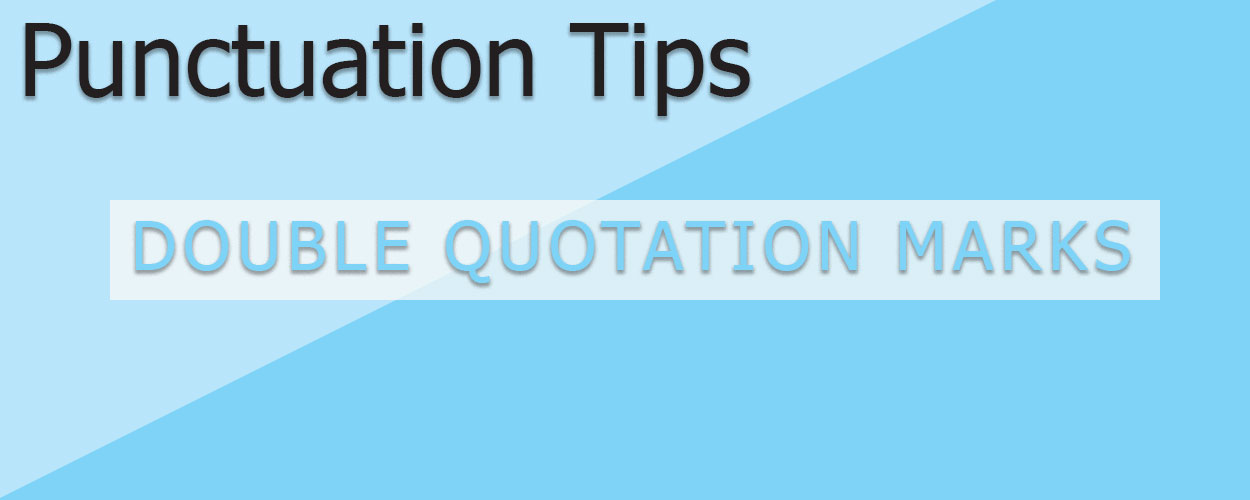

Posted: March 9, 2023
Definition: each of a set of punctuation marks, single (‘ ’) or double (“ ”), used either to mark the beginning and end of a title or quoted passage, or to indicate that a word or phrase is regarded as slang or jargon or is being discussed rather than used within the sentence.
Double quotation marks (called “quotation marks” in this article for simplicity) can be used in a variety of scenarios in combination with other punctuation.
Use quotation marks to set off dialogue. To be dialogue, there must be a speaker and either a visible or implied dialogue tag (verb of saying).
Use quotation marks to set off quotations.
Do not use quotations to set off a longer quotation (typically three lines or longer).
Use quotation marks to set off titles of articles, songs, poems, essays, and short stories (not larger works like plays, books, works of art, or periodicals).
Use quotation marks to indicate irony or to single out a phrase, but be careful not to imply irony where there is not.
Use quotation marks in translations of foreign words.
Use quotation marks around nicknames or slang.
Do not use quotation marks around nicknames that replace a name.
Do not use quotation marks around the term so-called.
Generally, periods and commas go inside quotation marks.
Colons and semicolons always go outside quotation marks.
Question marks, exclamation points and dashes all go inside quotation marks if they are part of the dialogue; otherwise, they go outside.
When there are quotations within quotation marks, single quotations are used instead.
American and Canadian English styles use double quotation marks “ ” for dialogue.
UK English uses single quotation marks ‘ ’ for dialogue.
Russian, French, German, Italian, and numerous other languages use guillemets « » instead of quotation marks. (These are positioned either facing inwards or outwards, depending on the region.)
The Period
The Colon
The Question Mark
The Apostrophe
Double Quotation Marks
Parentheses
The Slash
Obscure Punctuation
Aaron, J.E. & Morrison, A. The Little, Brown Compact Handbook, 5th Canadian ed. Pearson, 2013, chap 5
Judd, K. Copyediting, A Practical Guide, 3rd ed. California, CA: Crisp Learning, 2001, chap 4
Tigerpetal Press is a small book press dedicated to publishing local authors and poets.